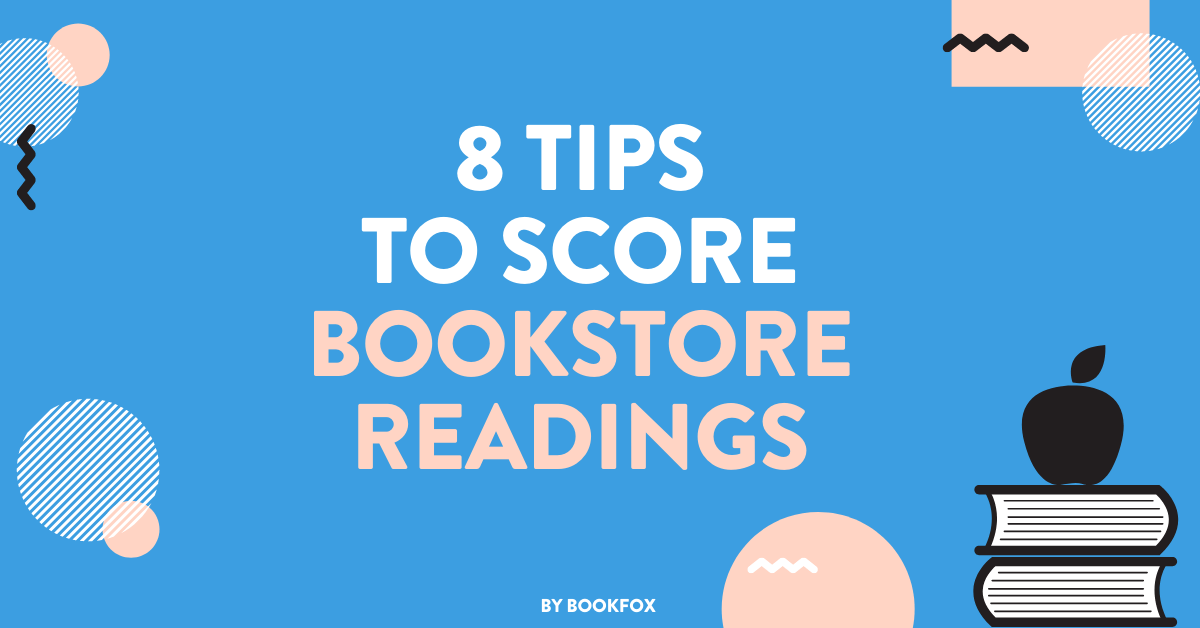 I’m going to give you the information every writer should know when approaching bookstores to plan a book tour: the perspective of a bookstore owner and an author.
I’m going to give you the information every writer should know when approaching bookstores to plan a book tour: the perspective of a bookstore owner and an author.
In December of 2013, Brian Lampkin and I opened Scuppernong Books in Greensboro, North Carolina. We sell mostly new books, some used, and we have a café where you can buy coffee, beer, wine, small plates, and snacks. We get a lot of requests from writers who want to hold events at our store, many more requests than we could possibly schedule. We hold as many events as we can, but we still have to turn down writers.
I’m going to tell you how to become a writer that a bookstore is more likely to accept rather than reject. Not only that, but I’m going to help you make sure the bookstore is really excited to see you, and after you leave, that the bookseller is more likely to hand-sell your books with enthusiasm.
1. Discover the Profile of the Independent Bookstore
 A bookstore that doesn’t carry children’s books is not going to be super excited about your “Winston, The Wonder Superdog” pitch. An independent bookstore that sells almost all Sci-fi and Fantasy might not appreciate your literary short story collection.
A bookstore that doesn’t carry children’s books is not going to be super excited about your “Winston, The Wonder Superdog” pitch. An independent bookstore that sells almost all Sci-fi and Fantasy might not appreciate your literary short story collection.
Do a little homework and figure out what the bookstore specializes in. See what kind of authors they’ve had read recently. Check out what the community around the store is interested in. It might be easier to sell your novel about romance in a 1930’s textile mill in an area where there were, or still are, textile mills.
It’s great if you can say you’re excited that we just had Beth Macy at Scuppernong, because you’re a huge fan.
It’s brilliant if you can say that you’ve been to the store, to see another author read or to buy a book.
Remember that you don’t want a one-and-done, you’re building a committed long-term relationship. You want to sell your books here on the next book tour, and the next one. For instance, John Green (“The Fault in Our Stars”) developed such loyal relationships with independent bookstore owners over the course of his career that, even after he got famous, he’d only give readings in independent bookstores.
Be like John Green. Think long term.
2. Create an Information Sheet about your Book
 This week, Scuppernong Books received an email that read, in its entirety: “I’m an author and I have a new book. What do I need to do to set up a reading?”
This week, Scuppernong Books received an email that read, in its entirety: “I’m an author and I have a new book. What do I need to do to set up a reading?”
There was no information about the author, the book, or even any indication that they knew who we were. In a vain attempt to be nice, I wrote back requesting more information. Here’s the response I received, in its entirety: “I’m _________. I live in _________. This is my first book. This is the Amazon link.”
Here’s the right way to do it: When approaching a bookstore for a reading or event, give us everything we need to consider your book and make a decision in one easy-to-read document:
- Title
- Author
- Publisher
- ISBN
- Price
- A synopsis
- Blurbs from other authors
- A short bio
- A picture of the cover
Don’t send an Amazon link and write: “Go there to find out about my book.” Don’t refer to Amazon reviews. No one cares about Amazon reviews. Amazon doesn’t even care about Amazon reviews.
3. Give the Bookstore a Reason to Pick You
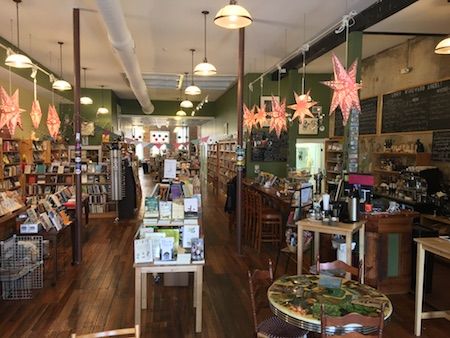
Bookstores have a lot of authors trying to hold events there. Why should we pick you?
We’re going to pick you if we think you can generate traffic to the bookstore. Your goal is to convince the bookstore that you can draw an audience and sell some books.
For instance, at Scuppernong Books, we do 30-40 events a month. If you check our online schedule, you’ll see nearly every day is booked and sometimes there are 3 events in a day. We know better than anyone that simply booking an event does not guarantee an audience. We’ll do what we can to get people there, but we want authors who will work to bring an audience.
 Here’s the info you need to tell bookstores:
Here’s the info you need to tell bookstores:
- If you know people in the area, or have professional connections there, and think you could get 15 or 20 people together for a reading, let the bookstore know. That’s useful information.
- If you can get on a radio show in the town or in the newspaper, that’s great too.
- If you’ve held a reading in that city or in a nearby city and drew a decent audience, tell the bookstore that. That’s a great track record that should get them fired up about you.
- But remember, if you’ve already sold your book to the 15-20 people above, just getting them there doesn’t help the bookstore much. You need some folks who are actually going to buy the book in the store.
We want your event to be successful just as much as you do, but our time and resources are limited, so help us figure out ways to get people to your event.
4. Reach out to Your Target Audience in the Area
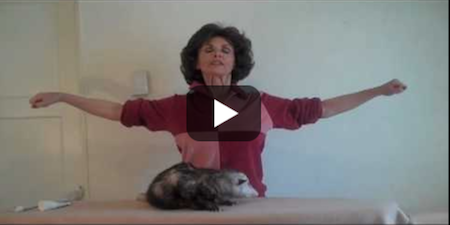 If you’ve written a book on Oppossum Massage, contact local Oppossum Clubs, animal groups, and even massage therapists in the area where the bookstore is located and tell them about your reading.
If you’ve written a book on Oppossum Massage, contact local Oppossum Clubs, animal groups, and even massage therapists in the area where the bookstore is located and tell them about your reading.
Then tell us that you’re reaching out to these groups. Trust me, this will thrill the bookstore!
Whatever the angle, contacting outside groups means you have a better chance that more than 2 people will show up to your reading. When authors get a big audience, it’s not an accident. It’s because they’ve done the legwork to make sure people show up.
5. Create an Innovative Promo Idea
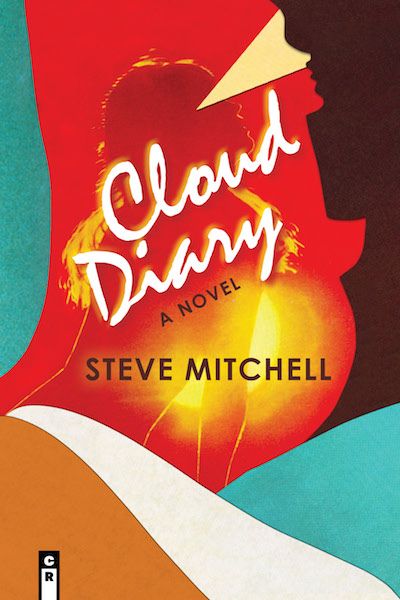 So, I’m also a writer. I recently began a book tour to promote my new novel, Cloud Diary, published by C&R Press.
So, I’m also a writer. I recently began a book tour to promote my new novel, Cloud Diary, published by C&R Press.
Seven months before publication, I opined to a musician friend that it might be interesting to ask musicians to respond or react to short scenes from the book with original music, but I was afraid it might be seen as exploitative. (You know, “play here for free for the exposure”.) He’d read some of the work and assured me that, no, he thought people would really be interested.
So, I began to put the word out. By February of this year, I had 24 original pieces of music by 19 different musicians, most of whom I don’t know. When I built the Cloud Diary website, I gave each musician their own page, with links to their own sites and other music. Suddenly, we were cross-promoting each other.
Here’s how it’s helped me with my book tour. I’ve convinced some of these wonderful musicians to accompany me to readings, where they play their original music based on scenes from the book. We’re no longer simply having a reading, we’ve got a whole performance going on!
This is an angle that booksellers can appreciate. They get a concert and a reading, and plus, all the musician’s fans show up to the event as well.
6. Drop Hints that You Know How to Do This
 Promise not to read a dreadfully long time. The cardinal rule of a bookstore reading is don’t read too long.
Promise not to read a dreadfully long time. The cardinal rule of a bookstore reading is don’t read too long.
Just don’t do it. No one will buy your book if you bore them. And unless you’re John Gielgud you cannot read for more than 20 minutes without boring people. Trust me. Don’t do it.
What booksellers really want is for you to entertain readers by answering questions, interacting with them, and making them feel special for being there.
Your goal when reaching out to a bookseller is to convince us that you’re going to be an exciting presence in our store and help us sell books.
7. Promise to Bring Bonus Material
 Consider arriving with a huge map of the fictional world of your novel.
Consider arriving with a huge map of the fictional world of your novel.
If you have a spinner that is essential to the plot of your book, bring them to hand out to the audience. Everybody loves a freebie.
If your novel contains a good amount of whisky/wine/beer, bring some to share with the audience. Actually, bring some even if the novel didn’t contain a drop of alcohol. (But double check with the bookstore and the liquor laws in the state first!)
8. Make Magic Happen at the Actual Event
 Now, if you do all that, you have a great shot at landing primo events at the perfect independent bookstores, and they’re likely to love you and continue to sell your books.
Now, if you do all that, you have a great shot at landing primo events at the perfect independent bookstores, and they’re likely to love you and continue to sell your books.
But remember that after all this, the reading might not go as planned.
Things go wrong. The mic doesn’t work. The books didn’t arrive on time or there aren’t enough books. There’s a guy in the audience who’d rather talk about his book, or his theory on the Fall of Troy, rather than yours. Yeah, it sucks.
But, when Zach Savich (“Diving Makes the Water Deep”) and Hilary Plum (“Strawberry Fields”) were at Scuppernong a few weeks ago and there were only four in the audience, they pulled the chairs into a circle. They read a little from their books, then they talked about writing with the folks that were present. Those four people felt special. They felt important. And they’ll remember that. They’ll remember Zach and Hilary too.
Be kind and supportive to other writers. We’re all in the same boat. Another writer’s success doesn’t take away from our own. You’ll notice I’ve included links to other author websites, as well as my own. In the same way I was able to cross-promote with musicians through the music project, I can cross-promote with other authors. This is an element of building a literary community: you help get the word out about them, they help get the word out about you.
The writing life is work. It’s glorious, painful, exciting, necessary work and it’s not just about putting words to paper. It’s about finding ways to get those words to the people who need them, who may not even know they need them until they find them.
That’s your job and mine. To get our words in front of the people waiting for them.
Steve Mitchell is the author of Cloud Diary, and lives in Greensboro, North Carolina with his partner, writer Deonna Kelli Sayed, and the cat, Mr. Zip. He’s co-owner of Scuppernong Books.

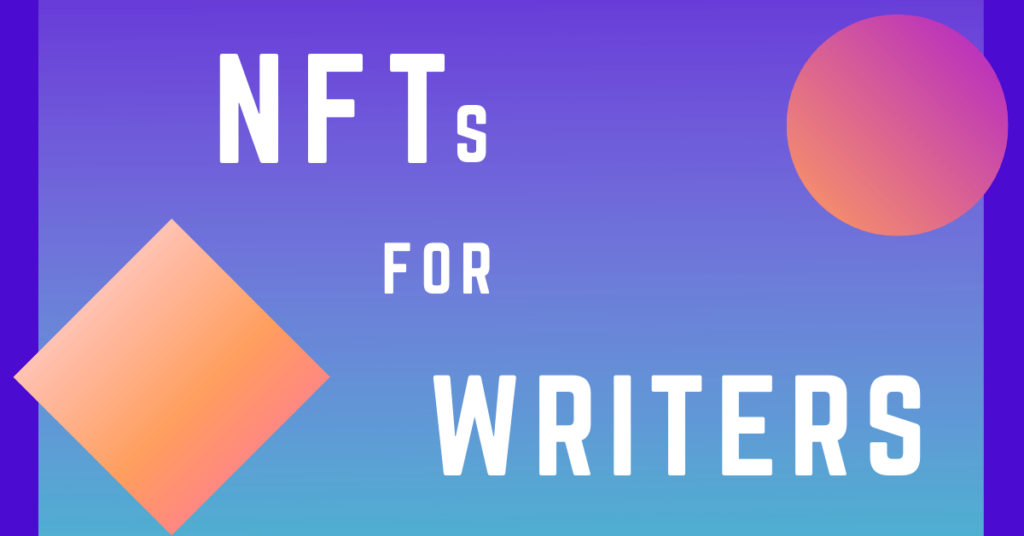

12 comments
Great post! I’m sharing this with my writer friends. Sadly, I made a few of these mistakes when I was starting out. (And I made some of these mistakes with Scuppernong. But Brian was super nice and helped me out anyway.) THANKS!
This is such great advice. I’m just coming off a book tour for my first novel. Reading this makes me want to come to YOUR bookstore in NC! Sounds like a wonderful place. Maybe for my second book. I’ll make sure we take your advice when my publicist pitches it to you.
Thanks for the sound advice. I know just where to try it out next! Even a children’s book author can apply these tips. So tell me, “Do you have children’s book readings in Scuppernong Books?” asked the South Carolina writer. Seriously, I’d love to know!
I so appreciate your laying out the process for a successful reading. My book, Odessa, Odessa (She Writes Press) comes out in September, and by then, I will have memorized your helpful hints.
Thank you for this clear, sage advice. It makes so much sense, but I’m not sure I would have been as thorough without your direction. I am so grateful to members of the writing world for unselfishly sharing tips to other folks. I may be coming to North Carolina and will definitely visit Scuppernong Books.
This is awesome advice! Every new, indie author should totally read this! I am such an indie author and I am desiring to do such a book tour, but until now had not read anything so detailed and helpful as far as approaching book stores. THANK YOU!!! I will be in Greensboro Aug 3 to do a signing at McKays. I can’t wait to stop in Scuppernong for some lunch and exploring!
This is wonderful advice – thank you from the bottom of my introvert/poet heart.
Very informative article with a lot of heart. Thank you. Does the bookstore want to read the book before booking the author?
No, usually they won’t read the book beforehand.
Steve, this information is incredibly useful. I could not believe my good fortune when I ran across it. I was looking for information to make sure that when I approach a bookstore to ask for a seat in their venue, I was doing so with whatever tools I needed. You have provided all of that and so much more. Thank you so much. I feel like I can pull this off now because many of your ideas were already in my head awaiting validation. I am eternally grateful for this.
Steve,
Thank you so much for this article. I’m working on my memoir, Loving With Autism: An AIDS Widow’s Memoir, which is about my experience as a young woman with undiagnosed autism who fell in love with my late husband Tim who died of AIDS in 1995 and I have already been thinking about marketing, so this article was very helpful.
Steve, many thanks for this how-to information. I will share it with a group of Triad authors I meet with each month. With my first novel set to release this summer, I want to reach out to bookstores across the state, and your guide to success is a valuable resource. I’ll follow up with you about a book-signing event soon.